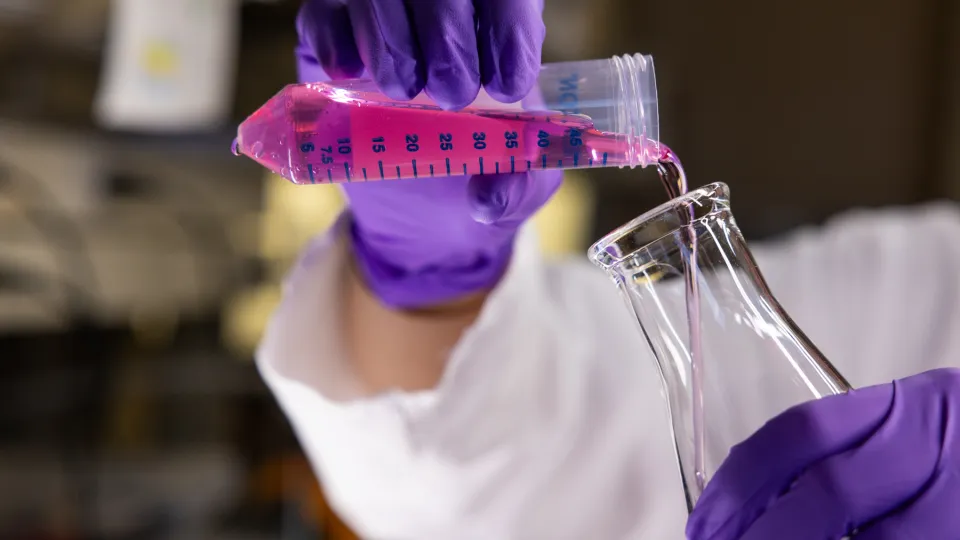News Brief
Fibroblasts Found to Promote Glioblastoma Tumors
December 11, 2023
It hasn’t been clear whether cells called cancer-associated fibroblasts (CAFs) are present in brain tumors known as glioblastomas or whether they might interact with cancer cells in those tumors.
Using high-throughput single-cell RNA sequencing data analysis and other techniques, Deyou Zheng, Ph.D., Xingxing Zang, Ph.D., and colleagues identified CAFs in human glioblastoma tumors and found that increased CAF abundance in glioblastoma correlates with higher tumor grades and worse clinical outcomes. The work, led by Phillip M. Galbo Jr., a recently graduated Einstein Ph.D. student, also showed that fibronectin—a protein secreted by CAFs—promotes the migration and invasion of glioblastoma cells. The study shows that CAFs, although present in small numbers in glioblastomas, appear to play important roles in tumor development and aggressiveness, and may make tumors resistant to chemotherapy. The findings indicate that strategies targeting CAFs may improve the treatment of glioblastomas. The study was published online on December 7 in Clinical Cancer Research.
Dr. Zheng is professor of genetics, in the Saul R. Korey Department of Neurology, and in the Dominick P. Purpura Department of Neuroscience at Einstein. Dr. Zang is professor of microbiology & immunology, of oncology, of medicine, of urology, is the Louis Goldstein Swan Chair in Cancer Research at Einstein, and a member of the National Cancer Institute–designated Montefiore Einstein Comprehensive Cancer Center.



